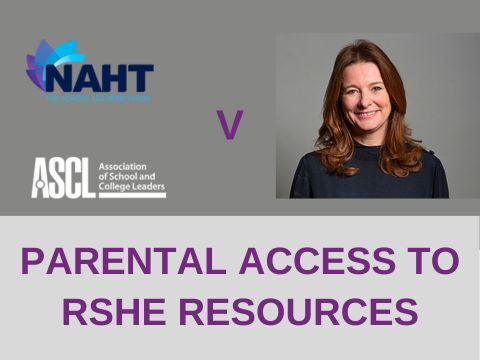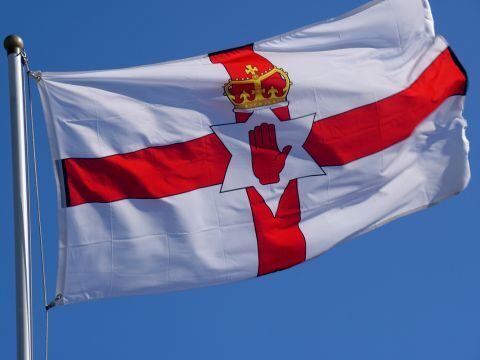

Has the Government buried the evidence of what parents and the public want from RSE?


In July 2018 the Secretary of State for Education, Damian Hinds MP, announced the publication of its Draft Guidance on the content and delivery of the new subjects. He also announced a change in policy regarding the Government’s previously stated intention to retain the parents’ right to withdraw their children from the ‘sex education’ aspects of RSE. This has been replaced by a ‘right to request withdrawal’ with the decision being handed over to the head teacher. In addition a further new compulsory subject of Health Education was also to be introduced in lieu of the full PSHE. The Government has announced a further public consultation on the proposed content of the new Draft Regulations and Guidance, which closes on 7th November 2018. It also announced that this Guidance and the obligation to deliver the new subjects would now come into force in September 2020 (rather than September 2019 as previously stated).
The new Draft Guidance and Regulations, if implemented, would constitute a radical new step in the State’s takeover bid for parenting in this country, and a further attempt to forcefully indoctrinate our children with the official state LGBT ideology. The programme of study is required to be ‘LGBT inclusive’ throughout and present same-sex relationships and family structures in a positive way, including at primary school; the emphasis is on the diversity of different ‘healthy’ relationships and family structures, with marriage (which in itself has been officially deconstructed) simply presented as one possible option amongst many. Secondary school children must be provided with the Government’s idea of comprehensive ‘non-judgemental’ information on contraception and abortion, and also signposted as to where to obtain such services without parental knowledge or consent. To cap it all, the right of parents to withdraw their child from ‘sex education’ at secondary school has now been removed and replaced by the ‘right to request withdrawal’ — the decision over our own children being forcefully handed over to the head teacher.
When the Secretary of State announced this new Draft Guidance in Parliament (19 July) he stated that the ‘level of consensus’ arising from the previous Call for Evidence (on what the Guidance should include) ‘was encouraging’. This implies that the majority of submissions to the last consultation were in favour of the kind radical LGBT and values-free sex ed agenda which is contained in the Draft Guidance. But what evidence is there to support such a notion? Do we know, in fact, what the majority of respondents — and most importantly, parents — did say they wanted from the new compulsory subjects (if we really were being forced to have them)? What exactly has happened to all the ‘evidence’ from the so-called ‘Call for Evidence’ (where we all had to explain what we wanted from each subject, with ‘evidence’ to justify our ideas, using a mere 250 words each time)?
It is normal practice after such Government consultations to publish a full report, featuring a detailed breakdown of the different range of responses. However, the Department for Education’s transparency and reporting of the results of the Call for Evidence has been highly inadequate, to say the least. Of the 23,000 submissions made, 18,000 were made online and a further 4,500 were received by post and email. To date only a brief summary of the online submissions (78% or 18,000 of them) by Ipsos Mori has been published, as an annex to the latest consultation document on the Draft Guidance. The 4,500 submissions made by email and post (representing 22% of the total submissions) have so far not been reported on at all. The Consultation document states that ‘responses sent in by letter or email were analysed internally by the department’. So where are the results of these responses? How can the Government publish Draft Governance which it claims was informed by the consultation process, if it won’t even come clean about the results of that consultation process?
What about those responses we do at least know a little bit of something about? Well even what restricted results the Government has allowed to be published feature some significant insights about the strength of feeling against the Government’s radical LGBT and values-free sex educations agenda, and, instead, in favour of a more pro-life, -marriage and -family ethos:
Primary Schools
- The Ipsos Mori results (on the online-only submissions) which have been reported by the DofE state that teaching LGBT ideology to primary school children is contentious and that there is no consensus in favour of it. Although they vaguely state that ‘many’ wanted the new subjects to ‘raise awareness of different types of family’, they admit that ‘opinions were also split regarding when children should be taught about LGBT relationships’ (p.7)[i] Similarly it is admitted that only ‘a small proportion of respondents suggest that primary schools should teach about gender and sexual identity, but this was a controversial viewpoint with others disagreeing that it is appropriate to teach about these issues at primary school’ (p.36).
- It is revealed that ‘opinions were split […] as to whether it is appropriate to teach any subjects related to sex education at primary school’ (pp.7,37). It is further noted that ‘where respondents support this, consent education (1,408, 9%) is the most widely supported subject area’ (p.37).
- Note, the alleged need for primary school children to all urgently learn about ‘consent’ as a preventative measure against child abuse has been one of the primary justifications for compulsory Relationships Education. This shows that only a small minority, even of those who wanted any kind of sex education at primary school, thought that this was important.
- The document states that ‘when asked the most important subject areas to be taught in Relationships Education at primary school, the most frequently mentioned is relationships with family (7,778, 52%), including building strong relationships with family members and awareness of different family compositions. It is likely that the volume of responses on family compositions is driven by “campaign” responses’ (p.36).
- It is encouraging that a large number have attempted to turn Relationships Education into something more positive by stressing the importance of family life. However, the report suggests that the LGBT lobby have also been campaigning to introduce to children the idea of ‘diversity’ of families, as a way of introducing young children to the LGBT lifestyle. It is not specified, however, what proportion of those lobbying for family education favoured this kind of PC approach, so it is likely to be a very small number.
Secondary Schools
- It is noted that ‘when asked the most important subject areas to be taught in Relationships and Sex Education (RSE) at secondary school, the most frequently mentioned by adult respondents is commitment (5,746, 39%), with an emphasis on traditional marriage. It is likely that the volume of responses on commitment is driven by “campaign” responses’ (p.37).
- Despite the remark about ‘campaign responses’ this shows the clear strength of feeling by the largest specified body of responses in favour of any relevant RSE topic. This at the very least represents a very large section of public opinion which the Government cannot ignore. Nearly 40% or adult respondents want RSE based on the primacy of natural marriage.
- It is otherwise clear that there is no majority consensus for the covering of any other specific subject within RSE, as only various minority statistics are provided in favour of such topics: eg. of adult respondents who thought teaching of ‘respect’ was important (5,174, 35%), sexual health (5,332, 36%), sexual consent (2,721, 18%). ‘Young people’ took part in a separate consultation and their online responses only represent a small proportion (13%) of total online Even so, only a minority of this minority favoured teaching in accordance with liberal LGBT ideology: eg. of this 13% group only 31% (668) of them wanted teaching about gender and sexual identity, representing 2.9% of all submissions.
If there is a majority in favour of any particular approach or subject to be covered in RSE then the Government is not revealing what it is. Either way the Secretary of State has no basis on which to claim there was any kind of ‘consensus’ in the consultation, and certainly not in favour of the liberal ideological approach they are taking in the Draft Guidance. Furthermore, because this summary does not include the 4,500 (22% of total) responses made by email or post then these findings are also a some degree skewed and unreliable.
The overwhelming response to the previous ‘Call for Evidence’ has, however, clearly sent a strong message to the Government that there is a large body of parents and other people in the country who are prepared to stand up for the defence of real marriage, for the natural family, and for the rights of parents as the primary educators of their children to be respected. The results, both revealed and hidden, of this Call for Evidence enable us to point to the evidence that there is not a majority consensus for the LGBT and sex education lobbies’ agenda — if anything, it would seem that the majority is firmly against it. Parents therefore must now reassert themselves with all confidence against our Stonewall-led Government, which has got a lot explaining to do concerning what was supposed to be an open and democratic consultation process. One thing is certain, however, for all of us parents — when it comes to our children, nothing that harms them will ever be accepted. In the words of the UN Declaration of Human Rights (Article 26.3), ‘parents have a prior right to choose the kind of education that shall be given to their children’, and that is a human right we will never allow to be ignored.
Dr Tom Rogers
Safe at School Campaign
Note: Parent Power are pursuing a Freedom of Information Request with the Department of Education, requiring of them to produce the full results of their last RSE consultation.
[i] Department for Education, Relationships Education, Relationships and Sex Education, and Health Education in England: Government consultation (including call for evidence response), July 2018.






